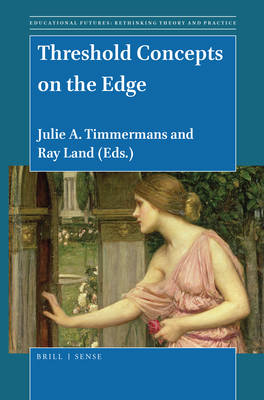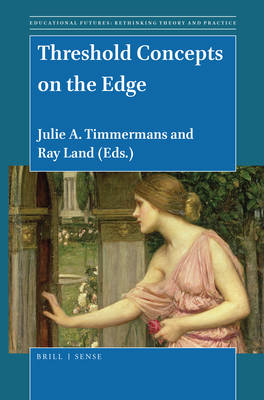
- Afhalen na 1 uur in een winkel met voorraad
- Gratis thuislevering in België vanaf € 30
- Ruim aanbod met 7 miljoen producten
- Afhalen na 1 uur in een winkel met voorraad
- Gratis thuislevering in België vanaf € 30
- Ruim aanbod met 7 miljoen producten
Zoeken
Threshold Concepts on the Edge
€ 105,45
+ 210 punten
Omschrijving
Since the first literature about the Threshold Concepts Framework was published in 2003, a considerable body of educational research into this topic has grown internationally across a wide range of disciplines and professional fields. Successful negotiation of a threshold concept can be seen as crossing boundaries into new conceptual space, or as a portal opening up new and previously inaccessible ways of thinking about something. In this unfamiliar conceptual terrain, fresh insights and perceptions come into view, and access is gained to new discourses. This frequently entails encounters with 'troublesome knowledge', knowledge which provokes a liminal phase of transition in which new understandings must be integrated and, importantly, prior conceptions relinquished. There is often double trouble, in that letting go of a prevailing familiar view frequently involves a discomfiting change in the subjectivity of the learner. We become what we know. It is a space in which the learner might become 'stuck'.
Threshold Concepts on the Edge, the fifth volume in a series on this subject, discusses the new directions of this research. Its six sections address issues that arise in relation to theoretical development, liminal space, ontological transformations, curriculum, interdisciplinarity and aspects of writing across learning thresholds.
Threshold Concepts on the Edge, the fifth volume in a series on this subject, discusses the new directions of this research. Its six sections address issues that arise in relation to theoretical development, liminal space, ontological transformations, curriculum, interdisciplinarity and aspects of writing across learning thresholds.
Specificaties
Betrokkenen
- Uitgeverij:
Inhoud
- Aantal bladzijden:
- 422
- Taal:
- Engels
- Reeks:
- Reeksnummer:
- nr. 73
Eigenschappen
- Productcode (EAN):
- 9789004419957
- Verschijningsdatum:
- 19/12/2019
- Uitvoering:
- Paperback
- Formaat:
- Trade paperback (VS)
- Afmetingen:
- 155 mm x 234 mm
- Gewicht:
- 635 g

Alleen bij Standaard Boekhandel
+ 210 punten op je klantenkaart van Standaard Boekhandel
Beoordelingen
We publiceren alleen reviews die voldoen aan de voorwaarden voor reviews. Bekijk onze voorwaarden voor reviews.










